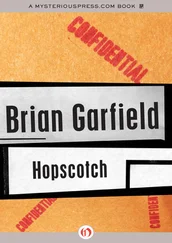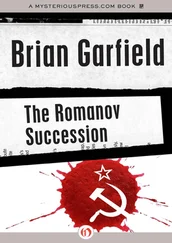Brian Garfield - Kolchak's gold
Здесь есть возможность читать онлайн «Brian Garfield - Kolchak's gold» весь текст электронной книги совершенно бесплатно (целиком полную версию без сокращений). В некоторых случаях можно слушать аудио, скачать через торрент в формате fb2 и присутствует краткое содержание. Жанр: Политический детектив, на английском языке. Описание произведения, (предисловие) а так же отзывы посетителей доступны на портале библиотеки ЛибКат.
- Название:Kolchak's gold
- Автор:
- Жанр:
- Год:неизвестен
- ISBN:нет данных
- Рейтинг книги:3 / 5. Голосов: 1
-
Избранное:Добавить в избранное
- Отзывы:
-
Ваша оценка:
- 60
- 1
- 2
- 3
- 4
- 5
Kolchak's gold: краткое содержание, описание и аннотация
Предлагаем к чтению аннотацию, описание, краткое содержание или предисловие (зависит от того, что написал сам автор книги «Kolchak's gold»). Если вы не нашли необходимую информацию о книге — напишите в комментариях, мы постараемся отыскать её.
Kolchak's gold — читать онлайн бесплатно полную книгу (весь текст) целиком
Ниже представлен текст книги, разбитый по страницам. Система сохранения места последней прочитанной страницы, позволяет с удобством читать онлайн бесплатно книгу «Kolchak's gold», без необходимости каждый раз заново искать на чём Вы остановились. Поставьте закладку, и сможете в любой момент перейти на страницу, на которой закончили чтение.
Интервал:
Закладка:
“It is late enough in my life that I can admit this now. My brother and I were officers only because we were somewhat educated men, we did not ‘look Jewish,’ and we had falsified our backgrounds and our names. Our village in the Ukraine had been overrun by waves of Germans and Russians and Czechs. We had a great fervor to survive, Maxim and I. It shamed us both, unspeakably, but we took Russian names and pretended to be kulaks who had joined the White Army because the Reds had confiscated our farm.
“The Whites were as anti-Semitic as the Reds, of course. They were all Russians, weren’t they? The Whites tended to blame Jews for bolshevism. A few Red leaders were Jews, that’s true, but after a while the Whites were convincing themselves that Lenin himself was Jewish-a canard to which I imagine Lenin would have been the first to take offense, since anti-Semitism was no small part of his nature. At any rate the Whites persuaded themselves that all Jews were Bolsheviks, and the terror of pogroms-particularly the massacres by Cossacks-went on and on, on both sides.
“Some of the Admiral’s own people were particularly vile in that respect. You know of course about the rumors that spread after the assassinations of the royal family-that the Czar had been murdered by Jews. Even General Knox believed those rumors, he reported them as fact to London. And at Ekaterinburg some White Cossacks butchered thousands of Jews in reprisal after the Romanovs were killed there. But the Admiral himself was rather indifferent, I think. Certainly he wasn’t visibly anti-Semitic.
“In any case they did not know we were Jews, my brother and I. In those days no one had much documentation and you were taken to be what you claimed to be.
“There were five of us, brothers, in my family. Three had been killed-two by the Germans, the youngest (he was sixteen) by the Bolsheviks. My brother and I, you see, had made a pact to survive. Nothing else mattered.”
After the Treaty of Brest-Litovsk the Germans moved swiftly into the ceded territories. German troops occupied much of the Ukraine and this penetration was the cause of the remarkable odyssey of the Czech Legion.
“I think there were about fifty thousand Czech partisans. They had wanted to free Czechoslovakia from the rule of the Austrian Empire, but they were fighting in the eastern Ukraine when the treaty was signed, and the German occupation cut them off from their homeland.
“They retreated slowly and in good order into the Ural Mountains. For a brief period the Czechs found themselves at war against both Austria and the Bolsheviks; and since they had these enemies in common with the White Russians it was not surprising they joined forces.
“But then there was the Armistice of November eleven, nineteen eighteen, and the Legion was no longer at war with Austria. The Legionnaires were no longer pariahs. They were citizens of a new free state, they had a homeland to which they could go, and they wanted to go to it.
“The Czechs asked for passage home along the Trans-Siberian Railway but the White Russians insisted that such aid would have to be paid for. The required payment was in the form of indentured service: the Whites offered rail transport, and the Allies offered to grant diplomatic recognition to the new Czechoslovak free state, if the Czech Legion agreed to remain in Russia for the time being and fight the Reds. I believe that General Knox suggested that the Czechs could get home merely by eliminating the Red armies that stood between them and Czechoslovakia.
“As a military unit the Czech Legion was probably the best fighting force to do combat on either side in the Russian Civil War. They were as ruthless as Cossacks, as well organized as Germans, as up-to-date as any army in the world. And their motivation for fighting was stronger and more clear-cut than most others’: victory was their ticket home.”
[For a few months the Legion fought spectacularly in front-line battles throughout the western Urals. But then Admiral Kolchak consolidated his command at Omsk.]
“The Admiral distrusted the Czech Legionnaires and their General, Syrovy; they were not Russians, and he felt it would be unwise to rely on an army which at the first opportunity would simply stop fighting and go home. So he withdrew them from the front lines and assigned them to guard the Trans-Siberian Railway, pending their evacuation to Czechoslovakia.”
By the spring of 1919 the Legion had moved east as far as Omsk and had begun to disperse its units along the railway eastward. Some of the Czechs thought of seeking their own way home by way of Vladivostok, but inadvertently the Japanese prevented it by encouraging their Tatar warlords to interfere with railway operations along the easternmost 2,000 miles of track. The Japanese felt Kolchak should be kept weak because otherwise he would challenge their territorial ambitions in the Far East.
It was the depredations of the Atamans that convinced the Czechs that the railway really did need their services. [If the Atamans succeeded in interrupting traffic it meant the remainder of the Legion would never get out of Siberia.] So the 40,000 Legionnaires stayed, most of them unhappy about it, and-with token American assistance-provided the only real defense of thousands of miles of fragile rails.
[By early 1919 the Bolsheviks were in an almost impossible trap. They were surrounded.
[To the south of Moscow, Denikin, with his Cossacks-supported by Allied units of White troops led by British, French and Italian officers and noncommissioned officers-had moved into positions previously occupied by the Germans. On the west stood Yudenitch with his mixed assemblage of White Russians, Poles, Germans and Letts. On the east, in Siberia, the Reds faced swift advances by Kolchak’s big White Army: his Cossacks, his Czech Legionnaires and the small forces of Allied powers. To the far north-Murmansk and Archangel-access to the vital seaports was denied to the Bolsheviks by British, French and American Expeditionary Forces.
[And in the northwest stood Mannerheim at the Finnish border: Smirnova danced at the Petrograd Conservatoire while White Russian guns muttered within earshot. The battle lines were drawn less than twenty miles from the city.
[The area controlled by the Reds had shrunk to a circle around Moscow about seven hundred miles in diameter. It was a fraction of the nation. Estonians, Letts, Lithuanians, Ukrainians, and particularly the Poles, led by their pianist Prime Minister Paderewski, were in open revolt against Lenin’s regime. The Whites now held the lion’s share of the world’s largest nation, an immense territory with a periphery of ten thousand miles. They had conquered the Don, the Kuban, the outer provinces at all compass points; Kolchak controlled all of Siberia except for the Japanese areas and Kolchak’s forces were as far along the road to Moscow as Perm. The slogan of the day was “Na Moskva!” -“To Moscow!”
[The Bolshevik Revolution was at the edge of collapse. It hung by its claws, bottled up in the center of Russia, and Lenin knew the Revolution would be destroyed irrevocably unless the Reds could reconquer a good portion of the nation by autumn.]
Somehow the Revolution tottered into February, then March, then April without falling. That it survived its own blunders and atrocities is far more remarkable than its having survived the attacks of its enemies. Russian industry suffered particularly under the heel of the new soviets. The workers had assumed power but lacked the managerial ability to go with it. They voted themselves shorter hours and 200 percent raises in pay. In the new “communist workers’ paradises” the workers’ soviets made all managerial decisions and this meant that a worker, regardless of his offense, could not be dismissed or degraded, nor a new man hired or promoted, without the approval of the workers’ council. Inevitably the soviets upheld the workers against the administrations. And every time a vote was required, the entire work force of the factory was called out to an assembly, which meant shutting down the plant. Inevitably, the productivity of Russian industry under workers’ control dropped to a pathetic fraction of its former output. Yet somehow the new Red nation stumbled on.
Читать дальшеИнтервал:
Закладка:
Похожие книги на «Kolchak's gold»
Представляем Вашему вниманию похожие книги на «Kolchak's gold» списком для выбора. Мы отобрали схожую по названию и смыслу литературу в надежде предоставить читателям больше вариантов отыскать новые, интересные, ещё непрочитанные произведения.
Обсуждение, отзывы о книге «Kolchak's gold» и просто собственные мнения читателей. Оставьте ваши комментарии, напишите, что Вы думаете о произведении, его смысле или главных героях. Укажите что конкретно понравилось, а что нет, и почему Вы так считаете.












